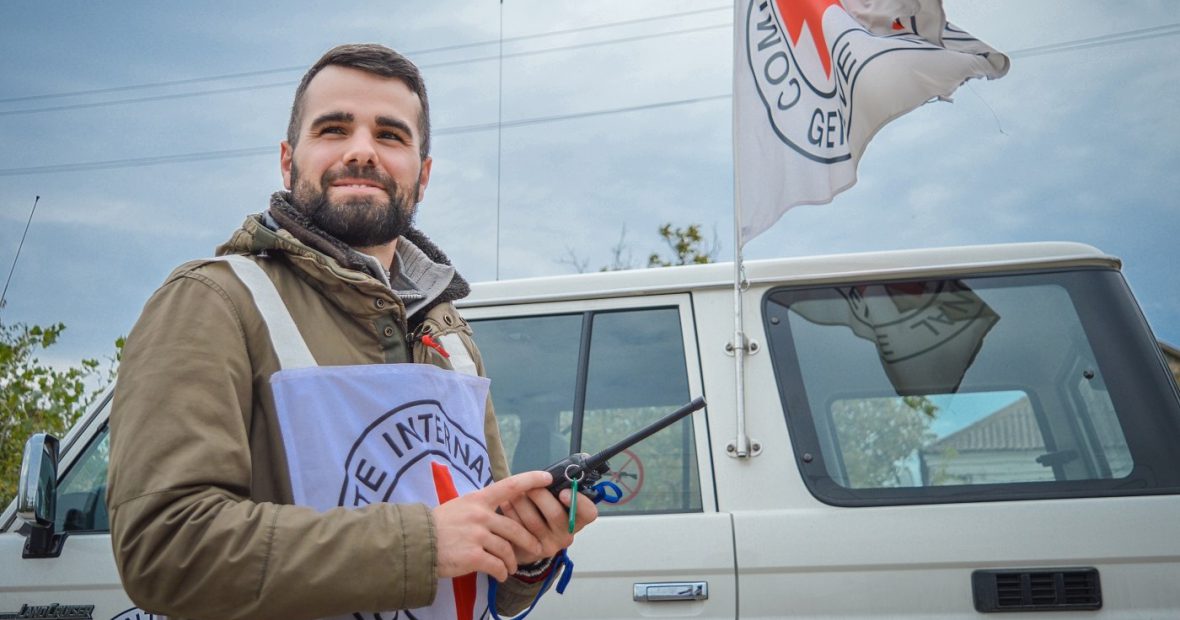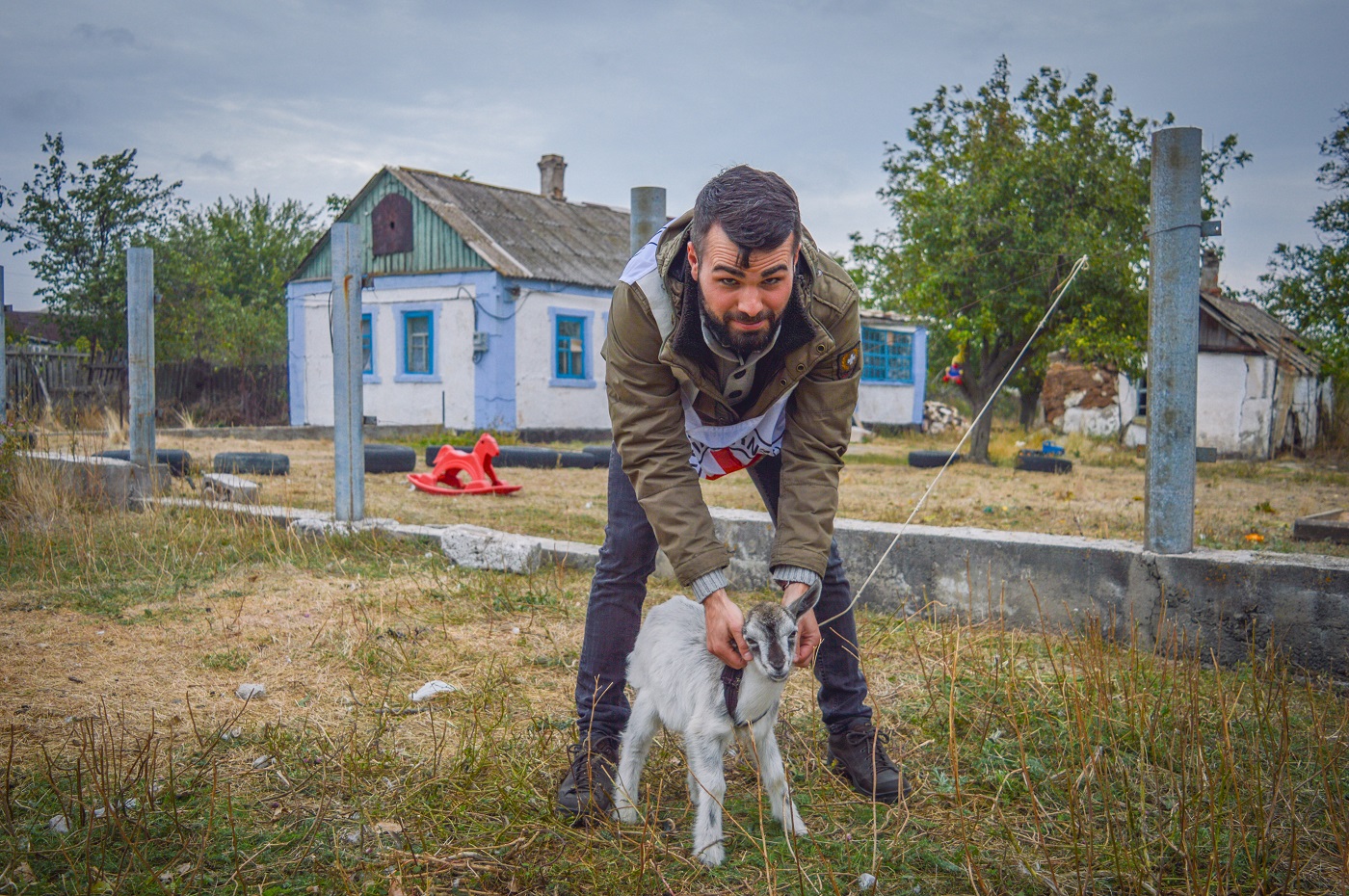Only a few weeks ago Gjemael Morina, new ICRC delegate in Mariupol, left Swiss mountains for Ukrainian steppes. Previously logistician and translator, Gjem – as many colleagues in Mariupol already call him – has tried his hand at different jobs. Before joining the ICRC, he worked for a marketing company, the International Organization for Migration, and as a Russian-French translator.
“I have experience in humanitarian work but I’m new to the ICRC. I’m really happy that my first mission led me to Ukraine,” Gjemael says. “I have followed the situation here since a long time, understand local mentalities and love the culture. I hope that all this and my language skills will help me to do my job well.”
As a protection delegate, Gjemael will focus on one of the ICRC’s core activities: protecting people whose lives are disrupted by the conflict. He’ll be working on matters such as access to drinking water, freedom of movement, and respect for people’s lives and dignity in armed conflict.
“I think that it’s very important to make people on both sides of the line of contact understand that they are not alone, that someone is ready to help them not only with words but with actions. If you’re all talk and no action, you’ll never be trusted and respected by people around you. I always try to keep that in mind when I meet people living in front-line villages,” Gjemael explains.
Seeing what conflict and violence can do to people isn’t always so easy for humanitarian workers either. Gjemael shares with us how he handles the pressure: “I practice meditation. These everyday exercises help to clear up my mind as well as my body. Besides, sports really help with stress. I like rugby, boxing and sambo; contact sports that help me to relax. I also believe that everything is cyclical in our lives and a run of bad luck will be followed by a good one.”



